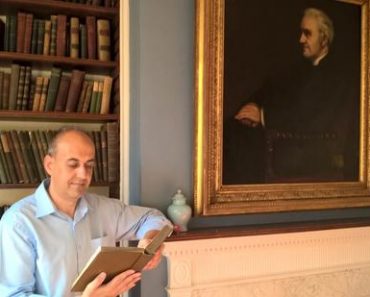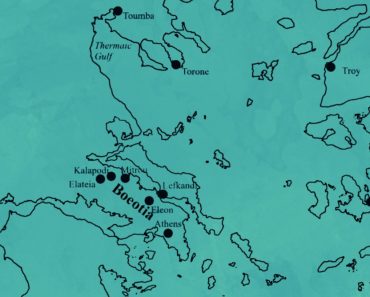25 years ago: Australian jury issues not-guilty verdict for child accused of manslaughter
On Friday, December 3, a New South Wales Supreme Court jury in Sydney, Australia acquitted a 12-year-old boy of manslaughter charges after less than three hours of deliberation, bringing to an end a sordid and barbaric attack on the democratic rights of children by the Australian state, the NSW Labor government, and the capitalist media.
The child, whose name was not publicly released, became the youngest person ever to face the Supreme Court and to be tried for manslaughter, a crime that carried a maximum sentence of 25 years in prison. After the verdict was announced, the young boy’s mother and grandmother wept with relief. The child, who turned 12 during the 14-day trial, failed to grasp the significance of the verdict, despite the explanation from his counsel. He sat expressionless until the court was dismissed.
The Crown prosecutor, Greg Smith QC, sought to portray the accused child, only 10 years and three months old when his playmate, the six-year-old Corey Davis, drowned in the Georges River, as a conniving, hardened criminal. Smith said pushing Corey Davis into the river was not a prank but a boy “acting the tough guy” whose actions involved “malice” and “deception.” Smith claimed that the young child had a “tendency towards telling lies” and was a “bully” who had “street cunning” and “knew the law of the jungle.” The prosecution also relied on unsworn testimony of children, some of whom were as young as six during the tragic drowning, and an interview with the accused boy at his home.
The defense, led by Peter Zahra, QC, used medical evidence on the accused child’s academic and intellectual development. Zahra said the tragedy was “mischief by a boy that went tragically wrong.” According to Dr. Brent Waters, a popular clinical psychiatrist and former convenor of the Film and Literature Review Board, and Dr. Pauline Langeluddecke, a leading psychologist in Sydney, the boy was two years behind his peers in terms of his academic, intellectual, and social performance in school. His age and underdevelopment made it impossible for him to understand that throwing someone in a river was a life and death issue, said Dr. Waters.
Zahra reminded the jury that there had been no fighting or hostility between the boys prior to the incident and said they had to determine their verdict, not on whether the child had a “general understanding of right and wrong,” but whether he understood that what he did was “seriously wrong” and “could lead to serious injury.”
He also defeated the prosecution’s melodramatic exaggeration of events at the river. Corey Davis drowned, not in some “dark or evil place,” he said, but at the local swimming hole, a place frequented by children and adults of all ages. “According to the Crown, pranks are available only to those with swimming pools—urban dwellers—but if someone is pushed in the river in the country it is evil.”
Lastly, the defense went after the media barrage over the case. “Don’t let some backroom editor, trying to sensationalise the case, to make people larger than life, to sell newspapers or compel people to watch television, influence you in your deliberations,” Zahra said.
Commenting on the affair in the Sydney Morning Herald, a senior criminal barrister wrote, “Pushing ahead with this trial is a shift back to a vindictive, barbaric past, where children were harshly punished as adults. It’s shameful. Manslaughter carries a long prison sentence, and charging a child with such an offence is a step backwards for our so-called civilised society and its legal system.”
50 years ago: Greek referendum vote establishes republic, abolishes monarchy
On December 8, 1974, the population of Greece voted in a national referendum on the form of government that would be established to replace the military junta that had collapsed the preceding July. The single question posed to voters was if the country should be governed as a republic or should return to a constitutional monarchy under the exiled King Constantine II.
The vote resulted in about 70 per cent in favor of forming a republic. All but two provinces returned majorities opposing the monarchy.
Since 1967 Greece had been ruled as a military dictatorship after a US-backed coup led by Georgios Papadopoulos seized power. Initially the monarchy had supported Papadopoulos and his coup and its crackdown on protests and strikes.
However, the period of junta rule was marked by a constant crisis of rule. In December 1967 Constantine plotted a coup of his own to remove Papadopoulos but the plan failed, and he was forced to flee Greece, though he officially still maintained his title.
Papadopoulos’ government was characterized by vicious anti-communism and repression of democratic rights. The anti-democratic attacks included the repression of student protests at Athens Polytechnic University in November 1973 where at least 30 students were killed and thousands injured. The popular outrage following the massacre was so great that the junta was forced to replace Papadopoulos as head of state.
In June 1974 another monarchist coup was attempted against the junta but again failed. In the aftermath, Phaedon Gizikis, the new junta president, proclaimed to have abolished the monarchy and that Greece was a republic. He ordered a referendum vote to act as a mandate for the junta’s rule, but the vote result was widely suspected as being rigged.
Weeks later the dictatorship began to break up. In July 1974 the junta orchestrated a right-wing coup in Cyprus that menaced the Turkish population of the island. Turkey responded by deploying forces of its own to Cyprus and the island was partitioned along ethnic lines. Many thousands were forced to leave their homes to comply with the new division.
The Greek-Turkish Cypriot war was massively opposed by the population. To prevent revolution, the junta agreed to work with the exiled leaders of the liberal bourgeoisie who were allowed to return to Greece and to begin formation of a new government.
Konstantinos Karamanlis of the New Democratic Party was named interim prime minister in July and won the office formally after parliamentary elections in November 1974. Ahead of the vote Constantine II, from his exile in London, made televised appeals to the Greek population to support the restoration of the monarchy. He pleaded that he had learned from past mistakes and that should his privilege be restored he would respect the parliamentary government.
Greek voters were unconvinced. While the new bourgeois Greek state was incapable of resolving any of the fundamental questions facing the working class, the referendum against monarchy demonstrated the immense popular hostility of the population to any kind of anti-democratic rule.
75 years ago: United Nations Relief and Works Agency for Palestine Refugees formed
On December 8, 1949, the United Nations Relief and Works Agency for Palestine Refugees in the Near East (UNRWA) was formed through a resolution of the United Nations General Assembly.
Resolution 302 (IV): “Assistance to Palestine Refugees,” stated that “continued assistance for the relief of the Palestine refugees is necessary to prevent conditions of starvation and distress among them and to further conditions of peace and stability…” and established the UNRWA for this purpose.
UNRWA defines Palestinians refugees as “persons whose normal place of residence was Palestine during the period 1 June 1946 to 15 May 1948, and who lost both home and means of livelihood as a result of the 1948 conflict.”
The number of people that definition included at the time of the UNRWA’s founding was around 700,000. Each of them was either forcefully driven out of their home by Zionist paramilitary groups, and later the Israeli Defense Force, or fled in fear of the campaign of terror those groups unleashed onto the Palestinians.
The 1948 war broke out in the aftermath of the proclamation in May by David Ben-Gurion of the establishment of the state of Israel, with Ben-Gurion serving as its first prime minister. The war deepened and continued a wave of expulsions and massacres of Palestinians, and the destruction of hundreds of Arab-majority towns, which had begun in 1947 after the announcement by the United Nations of its plan for the partition of Palestine.
The newly formed Israeli regime was supported in its atrocities by the UK, the US, and other imperialist powers. But the UN was more than complicit. Indeed, UNRWA was formed as a subsidiary agency of the General Assembly and reported directly to it, the same organization that had, one year earlier, voted to partition Mandatory Palestine into separate Jewish and Palestinian states. This was, as the WSWS has previously noted, “the result of the machinations of rival powers determined to maintain control over such an important geostrategic area.”
From the outset, UNRWA funding has been almost entirely voluntary, leaving Palestinian refugees at the mercy of financial contributions from the same imperialist powers responsible for their expulsion and oppression, including the ongoing Gaza genocide. The establishment of UNRWA was a fig leaf by the imperialist powers to cover their own complicity in the mass displacement of the Palestinians. Its continued existence, however, is a source of great angst for the Zionist regime, which condemns UNRWA for failing to have assisted in the depopulation of the entire Palestinian people.
Israeli occupation over the past 75 years has driven the number of Palestinian refugees up to almost 6 million people scattered throughout the Middle East, a number that will only grow amid the current genocide in Gaza.
100 years ago: Erich von Stroheim’s film Greed premieres in New York
On December 5, 1924, the film Greed, starring Gibson Gowland, Zasu Pitts, Jean Hersholt, and directed by the Austrian-American filmmaker Erich von Stroheim, opened in New York City.
The film closely followed the 1899 novel McTeague by Frank Norris, about a dentist in San Francisco who lies and betrays and murders those closest to him in a search for money. The novel and film end with McTeague handcuffed to a corpse in California’s Death Valley.
Taking his cue from the Norris novel, the film depicts the ambitions of American life: love, marriage, financial security, close friendship, as distorted by, in the words of von Stroheim’s biographer, “squalor, poverty, misery, lust, revenge, fear and greed.” Von Stroheim wrote the 300-page script that faithfully followed the novel, including Norris’s anti-Semitic depictions (these were cut later).
The film was shot almost entirely on location (including in Death Valley in the middle of the summer) and is widely regarded as a masterpiece. About 85 hours were spent shooting its original, whose length was almost 9 hours, but was edited down, against von Stroheim’s wishes, to about 2.5 hours for the premiere. Stroheim regarded this as an artistic blow, and the film did not reach critical success until the1950s when it came to be regarded by critics and filmmakers as a significant work. The New York state’s film censor, the Motion Picture Committee, also demanded cuts before the New York premiere.
As author Joseph McBride noted in an interview with the World Socialist Web Site: “von Stroheim was ruined by the studios because he was profligate and his films had a lot of sexual aspects that were groundbreakingly frank. Von Stroheim depicted the military and rich people as decadent and corrupt. His films made a lot of money; the public ate these things up. But he was seen as this crazed artist—Greed [1924] was originally nine and a half hours long. He was stretching the rules in terms of length and budget.”
Sign up for the WSWS email newsletter












